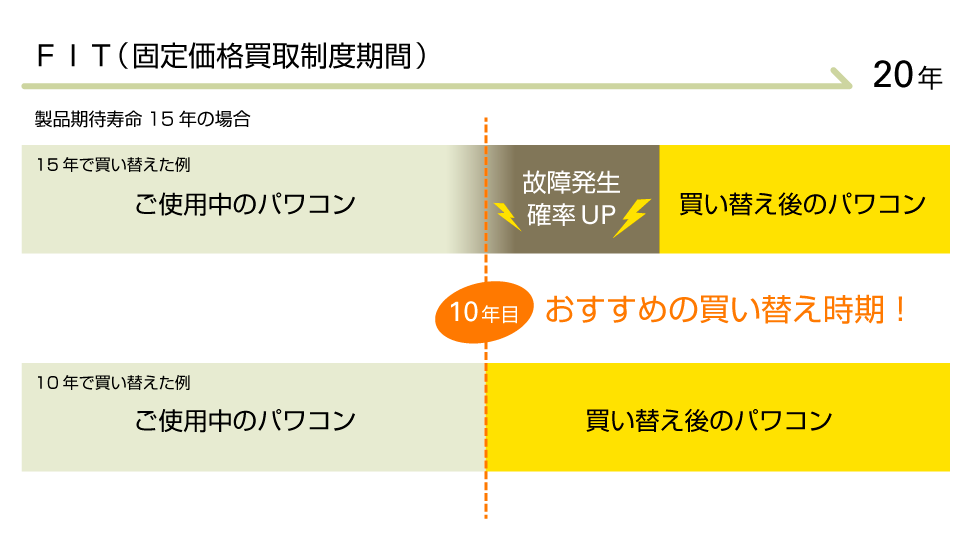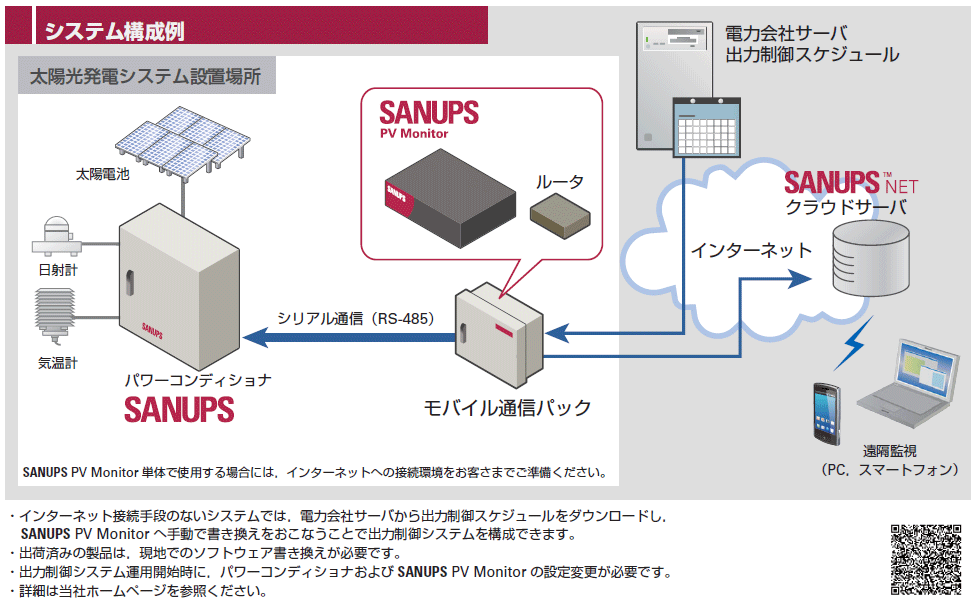



-
- Free Word Search




The lifespan of Power Conditioner varies depending on the size and usage environment, but it is generally said to be 10 to 15 years.
However, after 7 to 8 years of use, the parts used will gradually deteriorate and the probability of failure will increase. In addition, if the equipment is not used properly, such as not being installed according to the instruction manual, being installed in an inappropriate environment, or not undergoing regular inspections, the probability of failure will increase significantly.
Furthermore, if the manufacturer's warranty is set to a period of 10 years, there is a concern that if a malfunction occurs after that date, the buyer will be required to pay for repairs.
If you have installed a solar power generation system using the 20-year FIT (feed-in tariff) system, it may be time to consider replacing Power Conditioner at the halfway point of 10 years.

This is a 9.9kW and 10kW wall-mounted, insulated type Power Conditioner.

・Waterproof and dustproof: Protection class IP65*1. Can be installed outdoors without the need for a shelter.
- Measures against salt damage: Salt spray testing (IEC60068-2-52 severity 6) has been conducted, so the unit can be installed in areas more than 500 m away from the coastline.
・Wide range of operating temperatures: With the exception of some products, they can be used in environments ranging from -25℃ to +60℃. *2
*1 Protection levels vary depending on the product. Please refer to the respective specifications.
*2 If installing in a location exposed to direct sunlight, use the optional weather shelter.
・By using the cloud service "SANUPS NET", remote monitoring is possible from a PC or smartphone.

Please see the catalog site for the lineup.
FIT (Feed-in Tariff) is a system that started on July 1, 2012, in which the government promises that electric power companies will purchase electricity generated from renewable energy sources at a fixed price for a certain period of time. As of 2023, about half of the 20-year period for which the fixed purchase price was promised has passed.
Specifically, the system is operated as follows:
-People who set up power plants sell electricity to electric power companies at a fixed price based on the amount of electricity generated and the type of equipment.
-This fixed price will remain unchanged for 20 years.
-Power companies add the FIT purchase price to their electricity bills and sell it to households and businesses.
The benefit of this system is that "those who set up power plants can continue to sell electricity at a stable price for 20 years," and in the 2010s, not only mega solar power plants but also individual solar power generation systems were introduced in great numbers.
Please see the catalog site for the lineup.
release date: